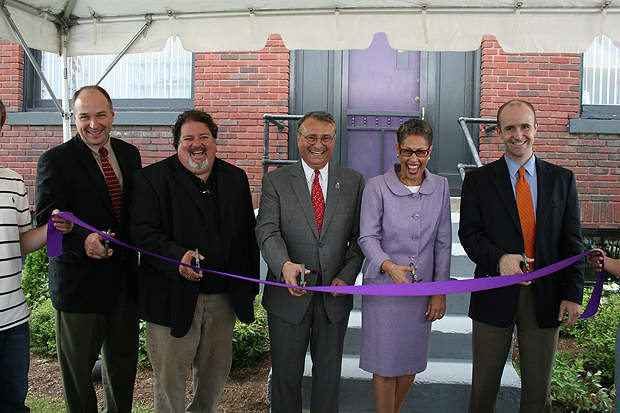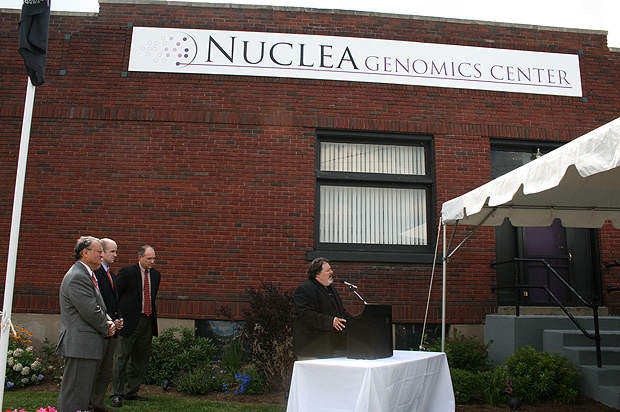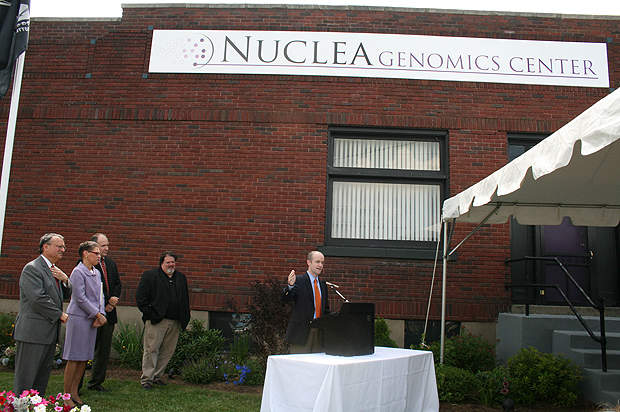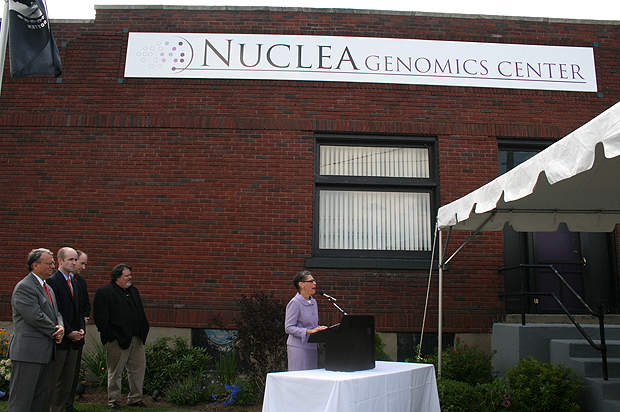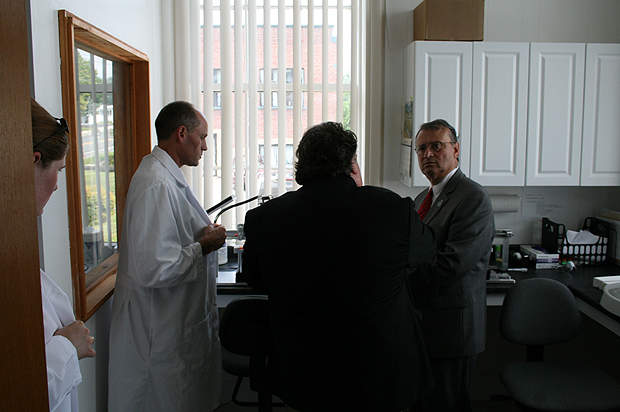Nuclea Biotechnologies, a translational medicine and genomics firm, launched a new genomics centre, on 4 August 2010. Located in Elm Street Pittsfield, Massachusetts, USA, the new centre was inaugurated with participation from Massachusetts Life Sciences Center and Massbio. The launch marks the second phase of Nuclea’s expansion plans, which began in 2006. Nuclea Biotechnologies will launch the third phase of expansion by the end of 2010.
The facility is a former Hillcrest Dental Center office that was converted at a cost of $2.5m raised through private equity funding. Approximately $8m has been directed towards the expansion. The new facility will operate with 14 to 16 employees. It will use Nuclea Biotechnologies’ connections with the Dana Farber Cancer Institute, Clark University and the Johns Hopkins School of Medicine. The facility will also link the clinical and discovery operations of Nuclea Biotechnologies in Worcester, Massachusetts.
Nuclea’s expansion
The second phase of expansion was originally planned to be carried out in Worcester. In 2008, Nuclea Biomakers had relocated its scientific operations to Clark University in Worcester, Massachusetts and had retained its computer operations in Pittsfield. It leased space in the Larsy Bioscience Building located on campus. The relocation followed the company’s failed expansion attempt in the William Stanley Business Park of the Berkshires.
During the first phase of the expansion, Nuclea Biotechnologies had established its operations in 105 South Street, Pittsfield, Massachusetts. The expansion, completed on 1 March 2006, increased the total employee base of Nuclea Biotechnologies from four to 10.
The last phase of expansion is scheduled for completion by the end of 2010. It will oversee the construction of a new biological manufacturing facility in Pittsfield.
Site selection for the facility has been completed and Nuclea Biotechnologies is currently negotiating for the development of the facility. The facility is expected to begin production of monoclonal antibodies (cells that assist in cancer research) by the end of 2010 with 15 new employees.
Facility
The new genomics centre is spread over 3,500ft2 and houses the necessary equipment required to define the gene expression profiles of particular oncology patient sub-populations that will be used to develop new diagnostic test and therapeutics. It will also be equipped with bioinformatics capabilities including new workstations that will assist in the high throughput analysis of proteomic and genomic information that is obtained from gene and protein expression profiles.
Production
The new facility will be used to help researchers in the study of genes and their role. Nuclea Biotechnologies will also use the facility to develop proprietary arrays used for proteins analysis.
MicroArray technology
The facility will use the Tissue MicroArray (TMA) technology of Nuclea Biotechnologies.
Using the technology, information related to raw gene sequencing will be profiled on several tissue samples.
It identifies the gene function of particular human diseases.
Results from the TMAs are linked to information on known genetic markers in the patented database of Nuclea Biotechnologies.
Data related to new genomic sequences is found and linked to the original biological function and medical significance, facilitating fast gene target profiling.
The technology eliminates the limitations of pure database platforms and smoothes the drug discovery process from cell analysis on TMAs to data analysis, while integrating new data at the same time.
Finance
The genomic centre has been financed through private funding. Nearly $5.9m has been obtained through two non-public offerings in the year ending 16 April 2010.
The new monoclonal antibodies manufacturing facility will be constructed at an investment of $9m that will also be sourced from private investors. With this, the total investment in the Pittsfield-based company will increase to $17.6m since its establishment in 2005.

